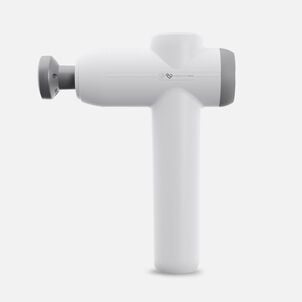What should you do with HSA funds when retirement time comes?

If you're approaching retirement — or contemplating a retirement that's still decades in the future — your health savings account (HSA) might be playing a role in your overall financial plan. If you've been contributing to your HSA for years and not withdrawing money, you might have a pretty good-sized nest egg squirreled away by the time you're ready to retire.
You might have been cash-flowing your medical expenses over the years — and saving your receipts — instead of paying for them with HSA funds. Or you might have been lucky enough to avoid major medical bills.
So, now you have to decide what to do with the money in your HSA. You won't be able to contribute any more money to your HSA once you're enrolled in Medicare (at age 65 for most people), but the money you've already accumulated in your HSA — plus any future growth in the account — is yours to use.
Hopefully, you'll stay healthy and active well into your golden years, and you might continue to avoid substantial medical costs. In that case, should you just leave the money in your HSA, letting it continue to grow with time? Or should you start to treat your HSA as a regular retirement account and just pay income tax on the withdrawals that aren't used for medical expenses? Or maybe a combination of those two approaches?
As with most things related to personal finances and health care, there's not really a right or wrong answer here, since it really depends on the rest of your circumstances.
What to consider about spending your HSA funds
You can't treat your HSA as a regular retirement account until you're 65. So although HSAs can function much like traditional IRAs, you have to wait a little longer. You can access the money in your retirement accounts — like 401(k)s and traditional IRAs — when you're 59.5 years old. At that point, you'll pay income tax, but not a penalty.
But for your HSA, that doesn't start until you're 65. Unless, of course, you're using the HSA funds to pay for qualified medical expenses, in which case there's never a penalty or income tax on the withdrawals. So, if you're retiring before age 65, your best bet is probably going to be to leave your HSA alone for a while, unless you need it for medical expenses.
Do you have long-term care insurance?
If not, what's your plan for covering the cost of long-term care that you might eventually need? Long-term care is expensive, and Medicare doesn't cover it. Medicaid does, but you have to exhaust most of your assets in order to qualify. If you don't have a plan in mind for how you might fund long-term care needs later in life, leaving your HSA alone might be a smart plan, since those funds can be used to cover the cost of any long-term care that you might eventually need.
And since withdrawals will be tax-free at that point (long-term care is a qualified medical expense), you'll be able to use 100% of the account balance to fund your long-term care costs, without having to worry about setting aside a chunk of it to cover taxes.
Don't forget about required minimum distributions (RMDs)
In most cases, your non-Roth retirement accounts are going to have RMDs that kick in once you turn 70.5 years old. At that point, you're required to start withdrawing some money each year (the IRS determines how much).
But there are no RMDs for HSAs, which means you have the option to just let that money sit in the account until if and when you either need it for medical costs or decide to withdraw it for something else and pay income tax on the withdrawal.
It doesn't have to be "all or nothing"
Maybe your overall plan is to leave your HSA money in the account until you need it someday for expensive medical treatment or long-term care costs. But that doesn't mean you can't also tap into your HSA for a one-time splurge vacation and pay taxes on the withdrawal. There's room for a little fun every once in a while.
Talk with a financial planner
We always recommend it, and with good reason. Speaking with a licensed financial pro can help you get a clear picture of how much money you can spend in retirement and which accounts you should tap first. As always, the information we provide here is a general guide, but you'll want to talk with a professional if you have questions about your specific circumstances.
--
Compound It! is your weekly update of achievable, effective, no-nonsense HSA saving and investment advice, delivered by people who make it work in their own lives. For the latest info about your health and financial wellness, be sure to check out the HSA Learning Center, and follow us on Facebook and Twitter.


.png)
















